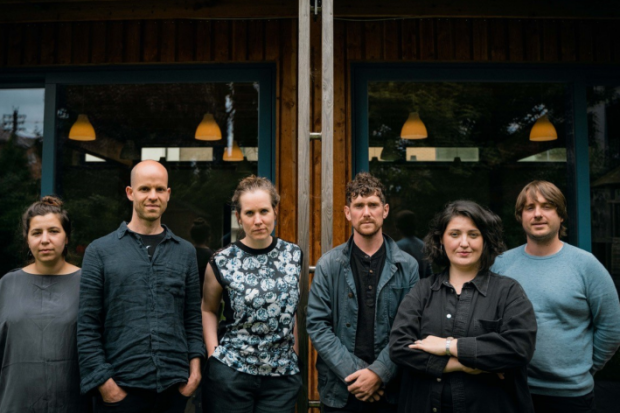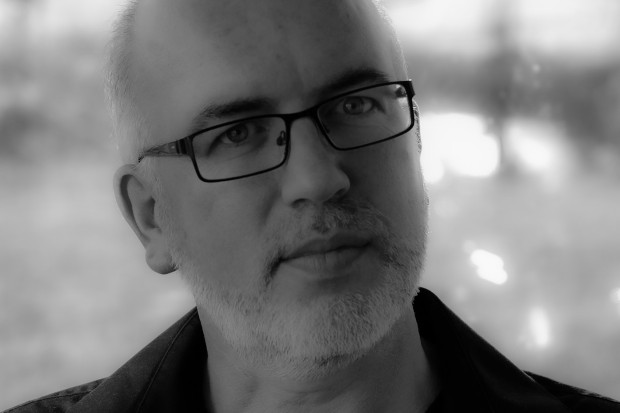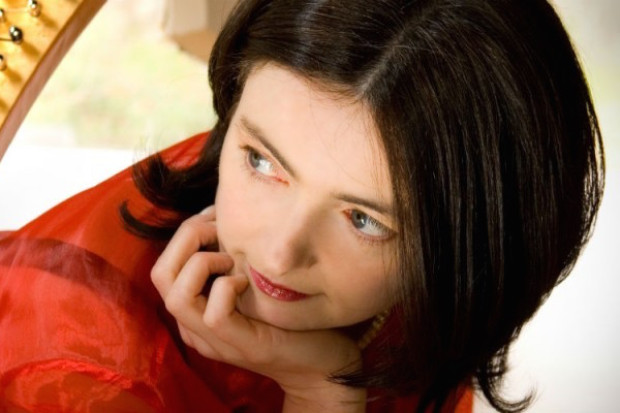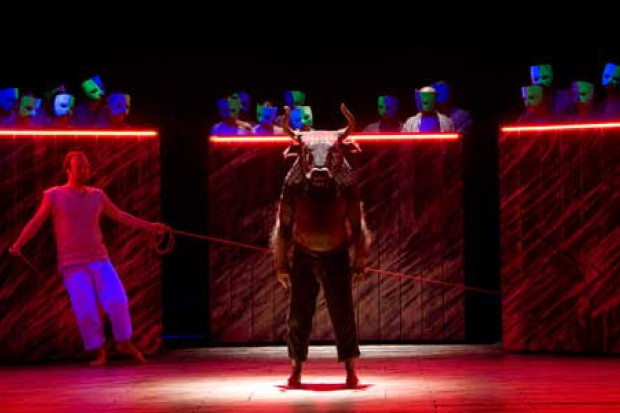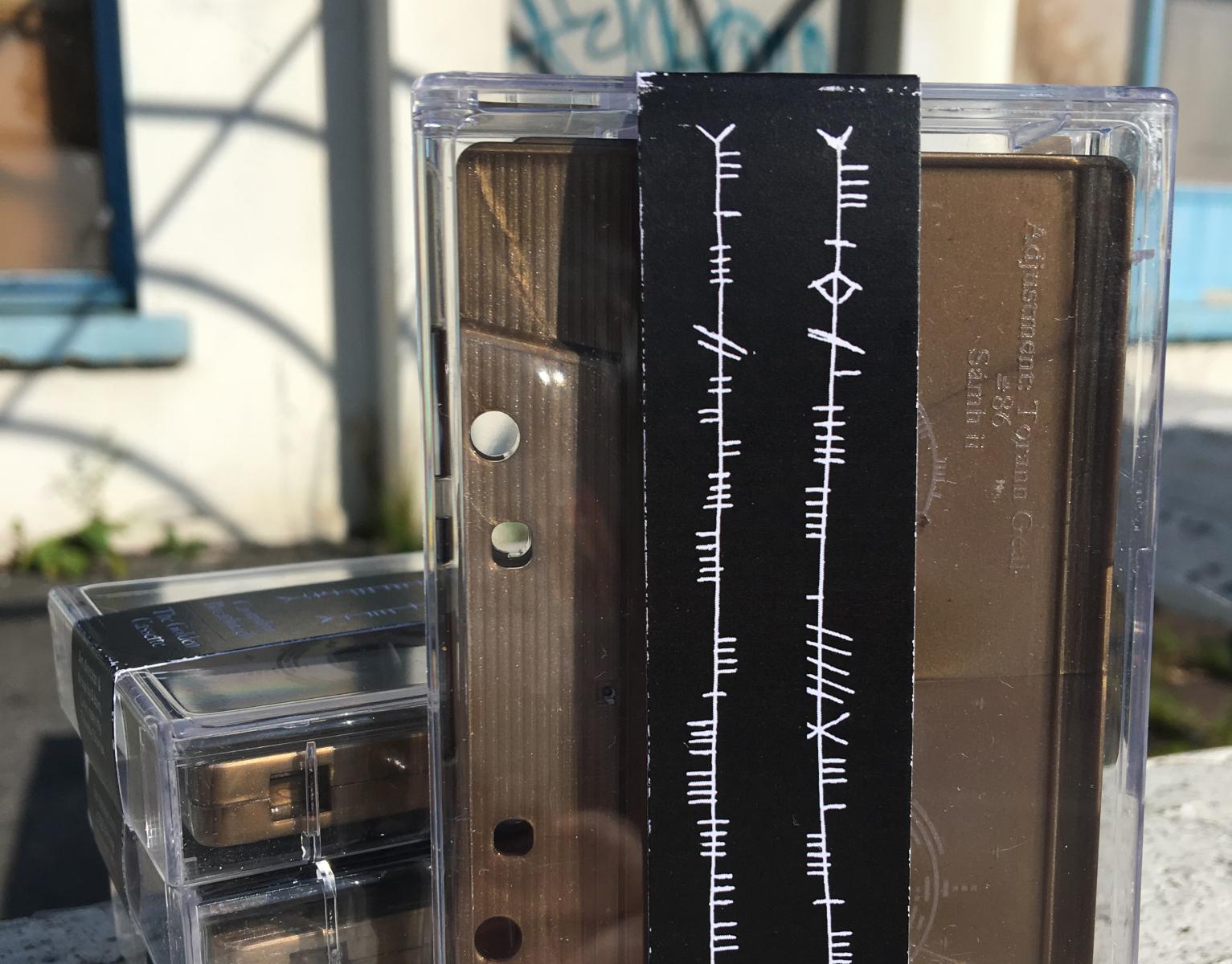
Uncommon Roscommon
The Golden Cassette is a new release from Caoimhín Breathnach, a composer I had not encountered before, but who lived as a prolific outsider artist in Roscommon from 1934 to 2009. The album, whose title is a clear reference to the Golden Record, which was launched into deep space aboard the Voyager spacecraft in 1977, arrives on a gold-painted cassette tape, along with ancillary materials, and is available in a highly limited run of 50 copies. Given the nature of the medium and the materials, and even the composer, who believed in sending ‘healing sonics’ into the universe, a straight review of the music on the recording is beside the point. The whole thing is experiential.
And the experience begins in the nose. On opening the packaging, a breath of lavender rushes out from the buds sprinkled inside. The other materials, in the copy I received, include introductory notes by Timothy Morton, a paper band with ogham writing on it, and an abstract photograph, all inside a nicely rigid plastic envelope. The liner notes offer little on Breathnach (he’s only named twice, once to note that ‘he’s a pretty decent chap’), and are instead a philosophical wandering, replete with puns and unexpected turns, on the nature of, for example, permanence, art, time, identity, and forks.
But the experience is more than just the items included. In my case, I hadn’t so much as held a cassette tape in a decade or more, and, once I’d borrowed a Walkman, the experience of using it was both nostalgic and novel. Things I’d forgotten, like the need to check which way to orient the tape, and the slow, imprecise process of tracking forward or backward, were concerns again for the first time in years.
Which is to say that, even before you listen, this release is strange and hard to get into. Once you do press play, you get an album with eight tracks – three on Side A and five on Side B – with each side beginning with an ‘Adjustment’.
Psychological state
The Adjustments seem designed to create not so much a mood as a psychological state. Each one – Torann Geal (‘White Noise’) on Side A, and Solas-Snámh (‘Light-swim’) on Side B – is less than two minutes long, and focusses, meditation-like, on a single sound. The titles indicate what to expect: in the first case, gentle waves of noise; in the second, a simple tone.
The most substantial work on Side A, Subliminal Tape #86, begins as a surreal meditation tape. (Subliminal tapes were recordings by Breathnach which he reputedly subjected to odd physical processes – everything from burning them to screening kung fu films for them.) Around two minutes in, a low staccato note on piano begins to sound, over and over, gradually coming to dominate while electronic noises, sirens, snatches of pop and rock music, and choral sounds, swirl around it and eventually disintegrate. Later on, the other sounds can only feebly rise to snatch at the corners of your attention.
By the end, you’re buried in that repeated note. So much so that Sámh ii (‘Peace ii’) – a gentle chord, its colour shifting slowly over three minutes – comes as welcome relief.
Side B gives us An Garda Síoraí (‘The Eternal Guard’), a six-minute melange of seemingly unconnected electronic sounds, and another Subliminal Tape, this one #37c, a broiling froth of muffled microphone noises. On the third track, Bolcán (‘Volcano’), the heavy clunk of a hand-held cassette recorder provides both rhythm and discontinuity to layers of start-stopping snatches of speech and music.
The last track, Subliminal Tape #21: ‘Dr Ormonde’, features the looped gurgle of a nearby drain and distant fireworks. The crackling ending, with headphones on, somewhat mimics the sensation of eating popping candy.
Documents of the Irish avant-garde
All that is to say as much as I can without addressing the elephant in the room: that the whole album is a sort of knowing hoax, one of Jennifer Walshe’s ‘Aisteach’ projects. Breathnach is her invention, along with a whole false history of contemporary art in Ireland. Her book, Historical Documents of the Irish Avant-Garde, explores Breathnach and two dozen or so other fictional Irish artists, complete with extensive documents and samples of their work. Digging into it, you start to feel as if you’re getting involved in somebody else’s conspiracy theory. It’s elaborate and deep, but with an air of artifice and admirable smart-arsery.
The irony in The Golden Cassette is that an album by a fictional composer from a fictional history forces such physical responses from the listener, from the materials included to the need to find a tape recorder to the physicality of the sounds of the album – of popping candy and gurgling drains; of weighty clunks of cassette-recorder buttons; of lumpen staccato piano. As I experienced and thought about this album, my mind was repeatedly drawn to a line from Alan Moore and Eddie Campbell’s From Hell, spoken by the fraud psychic Robert James Lees: ‘I made it all up, and it all came true anyway.’
For more on Jennifer Walshe’s Aisteach project, visit www.aisteach.org.
Published on 21 June 2018
Brendan Finan is a teacher and writer. Visit www.brendanfinan.net.












